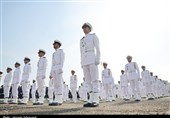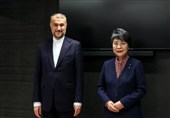Watchdog: Nuclear Warheads Still Building Up in 4 Countries
TEHRAN (Tasnim) – The global number of nuclear warheads dropped last year, but it seems China, India, North Korea and Pakistan are expanding the size of their atomic arsenals, a Swedish arms watchdog said Thursday.
The Stockholm International Peace Research Institute said developments in North Korea's nuclear program "contributed to international political instability with potentially serious knock-on effects."
SIPRI said that as of January 2017 the United States, Russia, Britain, France, China, India, Pakistan, Israel and North Korea together had about 14,935 nuclear weapons, down from 15,395 a year earlier, AFP reported.
SIPRI listed North Korea as not having any deployed warheads but with 10 to 20 "other warheads" which include "operational warheads held in storage and retired warheads awaiting dismantlement." The watchdog said the North Korean figures were uncertain.
"Recent steps in the nuclear disarmament field are encouraging," said Shannon Kile, head of SIPRI's Nuclear Weapons Project. "The groundwork laid in 2016 has been built on in 2017, with 122 states approving the Treaty on the Prohibition of Nuclear Weapons at the UN in July 2017."
"The so-called ban treaty is potentially an important milestone on a long-term path toward nuclear disarmament," he added.
More generally on global security issues, SIPRI noted positive developments such as the entry into force of the 2015 Paris Climate Agreement and a United Nations General Assembly resolution to start negotiations in 2017 on eliminating nuclear weapons.
However, one issue remains a major challenge to human security: forced displacement.
The institute said Africa and the Middle East "together currently host over two-thirds of the world's displaced population," adding the number of people displaced last year has "increased significantly" to more than 60 million.
Armed conflicts were the main reason for the displacement crises, SIPRI said in its 48th edition of its annual yearbook.






